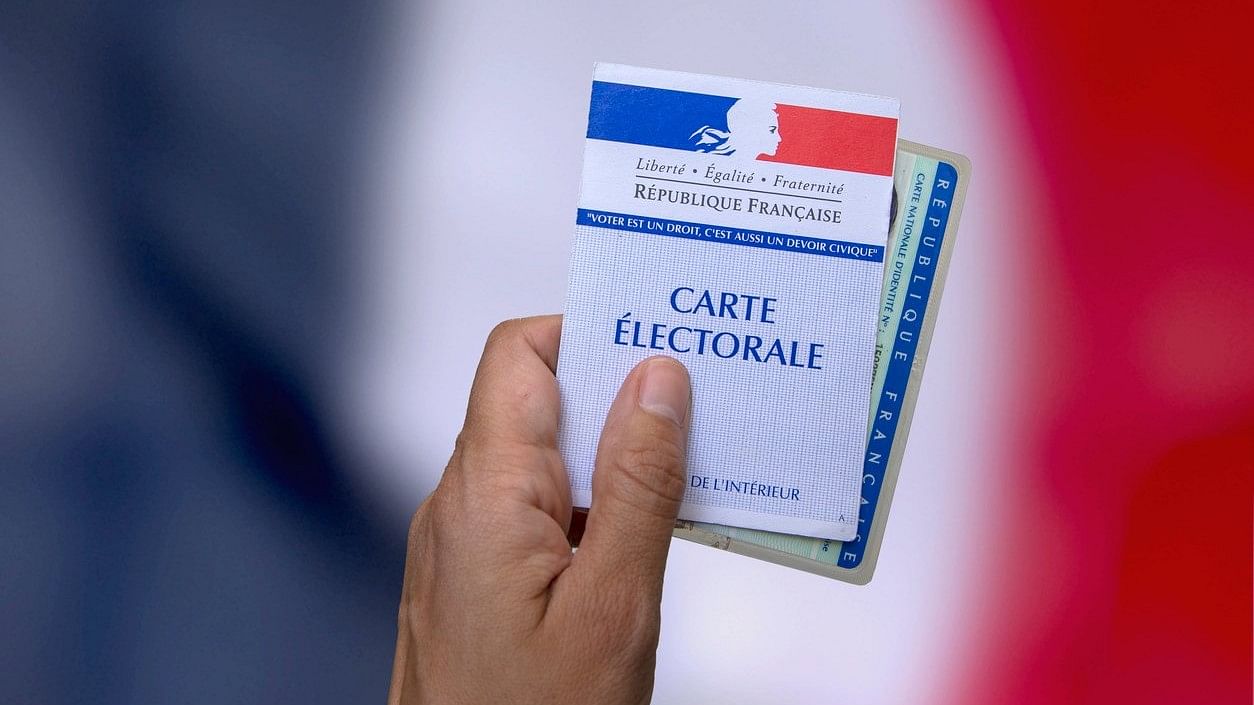
A representative image of a person holds an electoral card and an identity card to vote in France.
Credit: iStock Photo
Following the results of the EU elections, where he was beaten by Marine Le Pen's far-right party, the French President Emmanuel Macron took a gamble on his political future and called for new elections for the French National Assembly, dissolving the current one.
Macron's call came as a shock to the French people, however, he rolled the dice in hopes of the French people 'waking-up to Le Pen's true face' and overturning his current lame-duck image in European politics.
But how exactly do these elections work, who are the big players, and what Macron hope to gain through this snap election?
The two national elections of France
France holds two national elections for the general public to participate in - the Presidential election and the legislative elections.
The French presidential election is a simple election of candidates. Usually, 2 rounds of voting is held. The first round sees voting between all candidates.
Should a candidate achieve the majority, they are elected President immediately. If not, a second round is held between the two candidates with the highest vote percentage. The winner is elected president for a term of 5 years.
The French legislative elections resemble the the system India uses. The election is between different parties, with each constituency in the country and its overseas territories electing a candidate to represent them in the French national assembly.
577 members are elected to the National Assembly. A party needs a majority of 289 to form the executive body and elect their prime minister. The elected representatives hold the position for a period of 5 years.
Elections are held on Sundays in France, with campaigning stopped on Friday, and estimations of winners only allowed after voting is completed.
Polling stations are open to any French citizen over the age of 18 and on the electoral roll.
Who are the major players in France?
In France, currently there are two major parties in the running, among others.
The first is the ruling party, Renaissance(RE), or En Marche! as it was earlier known. The hold the majority in the National Assembly, France's lower house and the Senate, France's upper house, and also hold the Presidency, with Macron belonging to the party.
They were the party who upset the two-party system of the left-aligned Socialist Party and and right-aligned Les Républicains in 2017, placing themselves as liberal centrists.
In opposition is Marine Le Pen and her party, National Rally, a.k.a. Rassemblement National(RN). RN is a right wing populist party that recently gained a large number of seats in the 2024 EU elections.
It was this victory, along with a several other factors over the past few years, that led Macron to dissolve the National Assembly in a bid to prevent the far-right from gaining power in 2027.
French political parties have been rushing to try and find potential new alliances, though opinion polls show Marine Le Pen's far-right party is likely to win.
What does Macron hope to gain?
Macron's hope would be that the RN doesn't gain a majority and the rest of the parties ally with the RE to keep the right wing wave from reaching the French government.
However, Macron risks a situation where he loses power over the legislative assembly.
In usual circumstances, the majority party in the National Assembly is the same as the party the President belongs to. Thus, the President remains the decision maker while the Prime Minister becomes his deputy.
Should RN reach majority, Macron will have to make way for the Prime Minister they elect and maintain an uncomfortable cohabitation situation till the Presidential elections in 2027.
Victory for Macron will also overturn his currently unpopular image in Europe.
It remains to be seen whether Macron's gamble has come at the right time for him, or if it is far too late to stop Marine Le Pen's right-wing revolution in France.